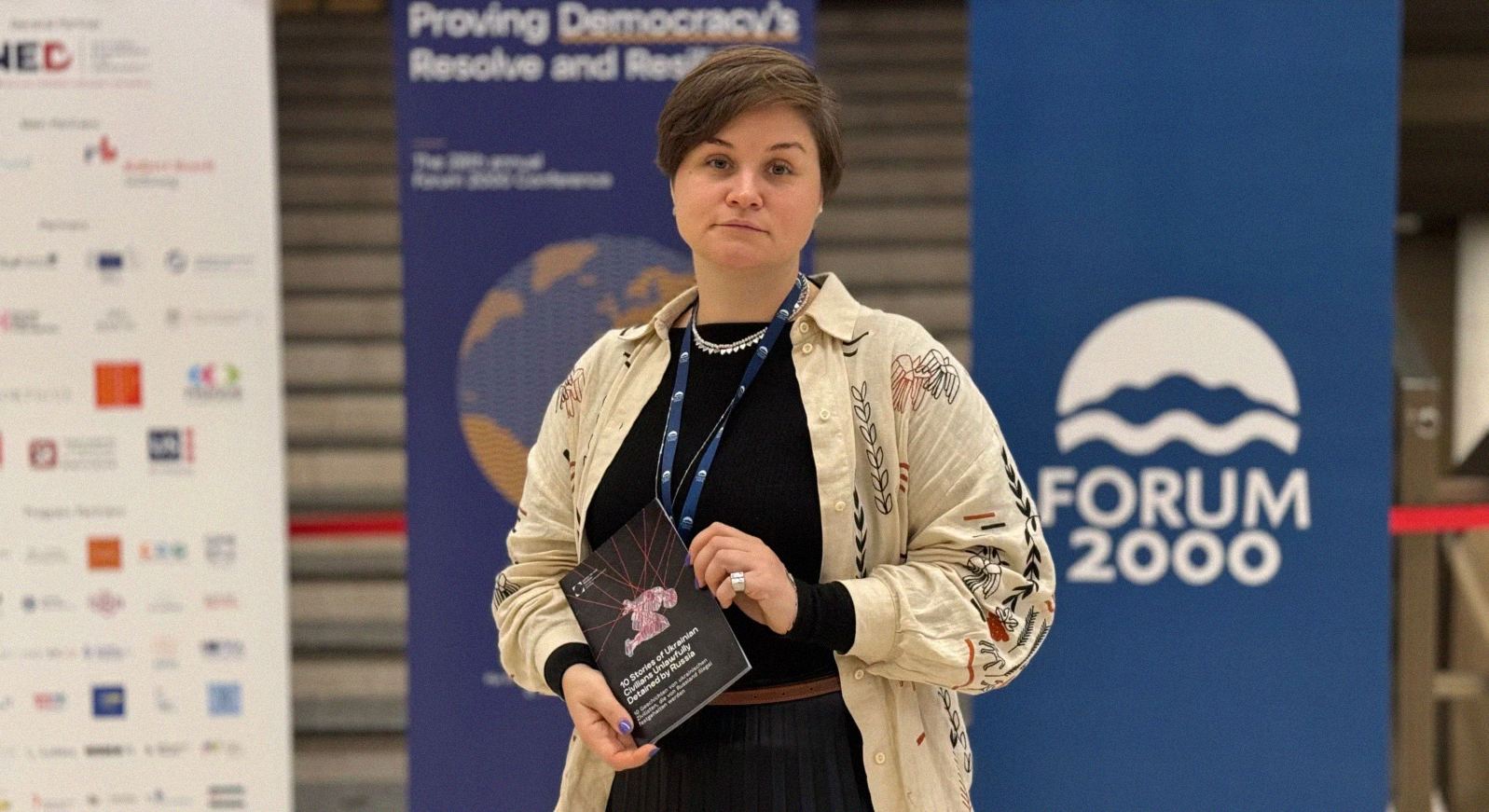«Russia’s violations are absolutely global from the legal, humanitarian, communication, and simply human perspective». Oleksandra Romantsova speaks at the 28th annual Forum 2000 Conference in Prague

The 28th annual Forum 2000 Conference, titled ‘Proving Democracy’s Resolve and Resilience’, was held in Prague on 13–15 October. At the event, public figures, politicians, and human rights activists discussed pressing issues, such as the world order on the brink, fragile democracies, technologies, including artificial intelligence, etc. Oleksandra Romantsova, Executive Director of the Centre for Civil Liberties, was among the event’s speakers.
A substantial part of the discussion at the conference concentrated on Russia’s war against Ukraine, among other things — on the rights of civilians illegally held in captivity by Russia and the 10th anniversary of repressions in the temporarily occupied Crimea. Speaking at the ‘Persecution and Detention of Civilians by Russia in the Occupied Territories of Ukraine’ panel, Oleksandra Romantsova pointed out that these civilians should be referred to as ‘victims of enforced disappearance’. Indeed, by abducting them from the Ukrainian territory, Russia has created a new type of crime. It is a war crime against humanity.
‘Our database contains 5,000 recorded instances of civilians held in Russian captivity. According to the Coordination Centre, these are 7,000 people. However, we are only aware about one eighth of them. In fact, there should definitely be some 30-40 thousand people out there.
‘How can we find out about them? Only from those who’ve come back from captivity and report seeing this or that person. This could be rather upsetting for someone who has just been released and is in a terrible state after all this experience. Relatives of all the missing people whom they might have seen immediately start calling these persons, which traumatises and destroys them even further.
‘This matter thus calls for a rapid response. We need a dedicated system, and among other things, the Coordination Headquarters has recently been authorised to deal with this. It is currently trying to develop and systematise a set of rules for contacting people, avoiding any losses of information. However, it requires a lot of resources,’ says Ms Romantsova.
The human rights activist also stressed that this event befitted the level of European and world political leaders and analysts. It enabled contacting and communicating with people who hold a mandate to represent their constituents or political positions in different countries. The global community should put pressure to release these people and improve the conditions that are currently resulting into deaths, terrible health conditions, and a total lack of communication with family.
‘Why is it essential that we talk about this on such a platform? For those who are currently concerned with the issues of illegally detained civilians, it means a fact-based demonstration of support for their position and motivation to continue working. For those who are hesitant, this brings this very problem to the forefront, reminding them that it is not a matter of civilians merely spending some jail time and being released a little later. It is that the detention in Russian captivity kills. Russia’s violations are absolutely global from the legal, humanitarian, communication, and simply human perspective,’ added Ms Romantsova.
Center for Civil Liberties operates with the support of the European Union.

